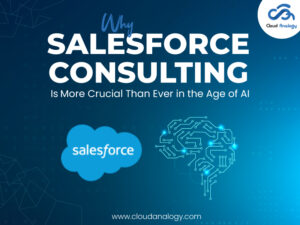Sharing is caring!
The high-tech industry is renowned for its precision, innovation, and rapid market launches. With a rapidly changing culture, where the product life cycle is becoming shorter and international competition is increasing, the role of Customer Relationship Management (CRM) software becomes even more important. Gartner studies show that over 91% of organizations employing 11 or more people use CRM applications. However, traditional platforms are found to be unsuitable for addressing the varied needs of high-tech companies.
From handling complex B2B sales cycles and complex channel partner networks to powering SaaS subscription renewals and guaranteeing regulatory compliance, a CRM is required to do much more than just hold contact information. It needs to support AI-based personalization, solid integration architecture, industry-strength analytics, and enterprise-grade security.
So, how to choose the right CRM for high-tech firms?
Let’s walk through the process step-by-step.
Step 1: Determine the Special Requirements
High-tech companies are working in fast-changing ecosystems with hybrid business models such as SaaS, IoT, and hardware-as-a-service. You must be aware of your firm’s fundamental requirements.
Major CRM features for high-tech businesses are:
- Lead-to-Cash Automation: Automate sales processes in multiple steps through opportunity scoring, quote creation, and CPQ (Configure Price Quote) software.
- Partner & Channel Enablement: Activate PRM integrations, commission structures, and partner onboarding portals.
- Customer Lifecycle Intelligence: Real-time telemetry through IoT or software logs for usage-based intelligence.
- Subscription Lifecycle Management: Invoicing, renewals, upgrades, and dunning workflows.
- Compliance-Ready Architecture: ISO 27001, GDPR, HIPAA-ready systems with audit trails.
- Open APIs & SDKs: Developer toolkits to expand the CRM with negligible latency.
Step 2: Emphasize Scalability, Efficiency, and Modularity
As your company grows, so does your CRM. Scalability isn’t a matter of tossing more users into the equation – it’s data structure, automation performance, and load capacity.
Key features:
- AI & ML Features: Forecast churn, upsell opportunity, or customer sentiment with built-in AI.
- Custom Objects & Workflows: Specify custom workflows (e.g., API usage logs, SLA timers) with accuracy.
- Cloud-Native Multitenancy: Global data compliance, high availability, and smooth updates.
“Forrester reports that businesses that tailor their CRM systems with a modular strategy are 45% more likely to surpass revenue goals.”
Step 3: Balance Industry-Specific CRMs with Generic Solutions
High-tech, enterprise-level CRMs like Salesforce, Microsoft Dynamics 365, or Zoho CRM possess robust ecosystems and require extensive configuration to be suitable.
Generic CRM Advantages:
- Established app marketplaces
- Community documentation and support
- Lower barriers to entry (in some cases)
Industry-specific CRMs like TechSmart CRM by Cloud Analogy provide:
- Lead Capture & Follow-Up Automation
- Smart Lead Assignment & Prioritization
- Unified Client Portfolio with Upsell Alerts
- Centralized Communication & Team Sync
- Quote-to-Cash Acceleration
- Project & Milestone Management Dashboard
- Automated Task & Time Logging
- Cost Visibility & Margin Optimization
- Expense Automation & Budget Control
Step 4: Verify Integration Ecosystem & API Availability
Sophisticated CRMs usually aren’t isolated. Your CRM will play well with:
- DevOps: Jenkins, GitHub, JIRA
- Customer Support: Zendesk, ServiceNow
- Billing and Finance: Stripe, NetSuite, QuickBooks.
- Marketing: Google Ads, Marketo, Pardot
Assessment Checklist:
- Does the CRM provide RESTful APIs and webhooks?
- Can it provide two-way synchronization with product telemetry devices?
- Does it support middleware connectors or iPaaS (such as MuleSoft or Zapier)?
- As per MuleSoft’s Connectivity Benchmark Report, tech stacks that are integrated drive revenue 5 times faster than those that are disconnected.
Step 5: Assess Total Cost of Ownership (TCO) for 3-5 Years
TCO is not just licensing but encompasses implementation, third-party integrations, internal training, maintenance, and downtime risk costs.
TCO Analysis Comprises:
- Personalization and Consultant Fees
- Internal Enablement Programs
- Annual Maintenance Agreements (AMA)
- Scalability for Future Storage and Upgrades
Be careful for “hidden costs” such as limited API calls, expensive storage, and non-modular pricing. It might be cheap today, but it will cost you more as your business expands.
Why TechSmart CRM is the Best CRM for the High-tech Industry?
Selecting the optimal CRM for high-tech industries is a high-dimensional choice that affects sales velocity, customer loyalty, and product innovation. Generic CRMs have breadth but no domain specificity required in the contemporary tech ecosystems. Cloud Analogy’s TechSmart CRM is tailored for high-tech environments. With an advanced dashboard, user-friendly UI, and Agentforce-driven analytics, it minimizes time-to-value and maximizes ROI. Cloud Analogy, being one of the top Salesforce consulting companies, offers end-to-end Salesforce consulting services for high-tech industries. With years of experience in Salesforce application development, we continue to build new solutions as a trusted Salesforce Summit partner among Salesforce consulting companies. Check out our latest Salesforce App launch – MCUtility, which brought Demo Jam Tag to us. If you have any requirements that match our expertise or need consulting assistance, get in touch with us today.
And, of course, to manage all your High-tech business needs, TechSmart is here. Choosing TechSmart CRM means shifting all your high-tech processes into a single dashboard. The choice is yours.
To stay updated with our latest app launch, new solutions, and upcoming event meetup plans, do follow us on our social media platforms. Thanks for reading!

Akshay Dhiman
Chief Technical Officer
Akshay Dhiman, the CTO of Cloud Analogy, has been a standout and successful Salesforce Platform Developer for years. He has a rich experience in Salesforce Integration, JavaScript, APEX, VisualForce, Force.com Sites, Batch Processing, Lightning, PHP, C++, Java, NodeJs, ReactJs, Angular 8, GraphQL, React Native, Web Technology, and jQuery.Hire the best Salesforce Development Company. Choose certified Salesforce Developers from Cloud Analogy now.










